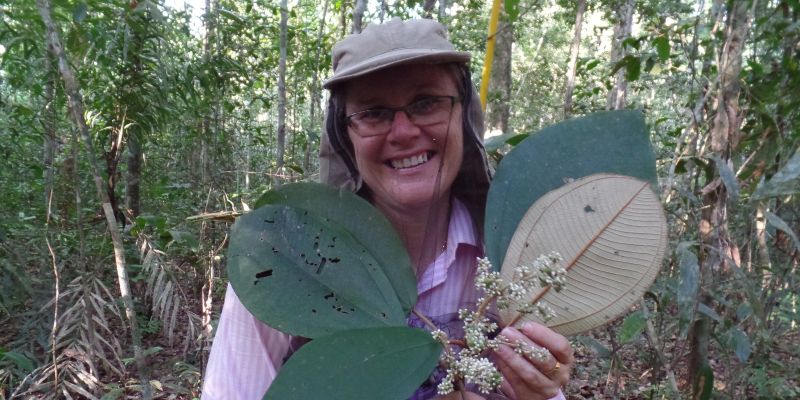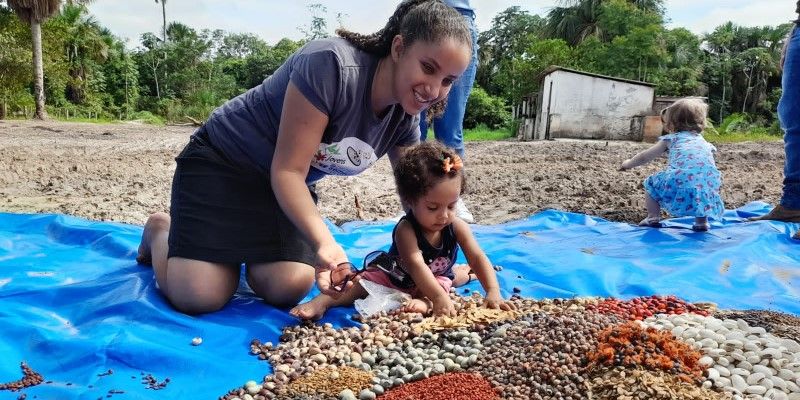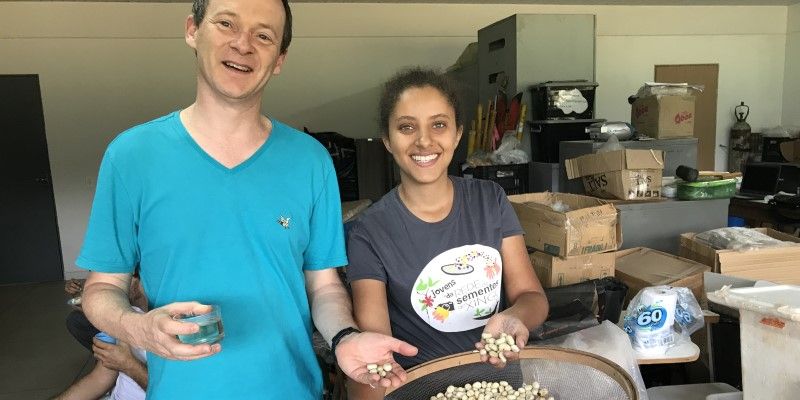In just 50 years, 17% of the Amazon rainforest has been lost. Agriculture, mining and an increasing population place insurmountable pressures on this critical global resource.
On its Southern edge, where the rainforest merges with the Cerrado tropical savannah, native species and indigenous communities coexist in a mosaic of different habitats. Yet, this region now stands as the Amazon's hottest, driest and most degraded, grappling with advancing agriculture, soaring temperatures, frequent fires and extended dry seasons.
Here, the price paid by those who call this place home is steep – habitat loss and a diminished quality of life as Amazonian riches are given up to commerce and climate change.
Reforesting one of the most deforested regions on Earth
In Southern Amazonia, communities work together to rebuild their forest from the soil upwards, coordinated by initiatives like the Socio-Environmental Institute and the Xingu Seed Network – Brazil’s largest seed network contributing to reforestation efforts.
The network is supported by a team at Brazil’s State University of Mato Grosso (UNEMAT), led by ecologist Beatriz Schwantes Marimon. In partnership with local communities who collect and share seeds, the researchers are developing crucial new knowledge about why trees die, and which species are best adapted to climate change. Their mission is to replace lost trees by collecting, identifying and sowing seeds that have the best possible chances of survival.

Pictured: Professor Beatriz Schwantes Marimon holds some rainforest leaves.
“Because of our changing climate and the destruction of our forests, indigenous people are losing their capacity to learn and to read the sorts of environmental signals that would typically help them to decide what to plant and when,” said Professor Schwantes Marimon, who has worked in close collaboration with Professor Oliver Phillips in the University of Leeds School of Geography since 2008.
Together with University of Leeds researchers, Professor Schwantes Marimon’s team are training and collaborating with women rural seed collectors in the Xingu Seed Network to use scientific methods when they collect, process and identify seeds for reforestation. The research team’s support means that women are more likely to sell seeds which are best adapted to grow in a warmer world, generating income for their families.
Collaborating with community groups like this is just one initiative in UNEMAT’s 15-year partnership with the University. Professor Phillips’ group has provided training, research sabbaticals, computing innovation, and experimental and analytical expertise to conservation efforts on the ground in Mato Grosso.
Empowering communities for data-driven field research
“Together, our biggest challenge is to create communities who are measuring forests and learning how they are responding to climate change,” said Professor Phillips. “Working with Beatriz’s team at UNEMAT, we share a vision of building scientific understanding while also increasing equity. This means creating more opportunities for the Amazon rainforest’s people to study their 15,000 tree species, and to lead their own research.”
As part of their longer-term monitoring efforts, Professor Schwantes Marimon’s research group has created a network of long-term forest monitoring sites across Mato Grosso, connecting these with the pan-Amazon RAINFOR network and the pan-tropical ForestPlots.net initiative, led at the University of Leeds by Professor Phillips.
“It’s very important for us to have a platform like RAINFOR to support our work collecting, extracting and organising forest management data,” said Professor Schwantes Marimon.
“We maintain and monitor the plots and carry out inventories, and our partners in Leeds provide us with training and support us to standardise our research protocols.”

Pictured: Milene Alves de Oliveira Lima, a Xingo Seed Network collector, and child with Amazonian seeds.
Through the global ForestPlots.net network, UNEMAT and the University of Leeds are part of a much wider global community of tropical researchers, powering research with open data. It brings together teams from 64 countries to measure forests tree-by-tree in 6,900 long-term plots. These collaborations have so far revealed long-term carbon sinks, identified forest processes affected by climate change, and uncovered how tropical forests might respond to different future scenarios.
Roots of change
The network is building capacity for more equitable grassroots research, ushering in a quiet revolution for tropical forest science. As digital tools become more prevalent, Social Research Networks like these drive scientific agendas that are informed not by satellites or machine models, but by people. “We need fieldwork from those in contact with the trees and the communities they support, because, without this, we may simply lose touch with the systems we are trying to protect,” said Professor Phillips.

Pictured: Professor Oliver Phillips and Milene Alves de Oliveira Lima, a Xingo Seed Network collector, sorting seeds.
Now, 15 years into their research partnership with the University of Leeds, UNEMAT exemplifies the vision of empowering communities. “Many of our students are from poor families, they have not seen the world. So, exposing them to the wider academic community helps them to see they have the potential to become independent researchers,” said Professor Schwantes Marimon. Professor Schwantes Marimon has seen a flourishing of postgraduate and doctoral training at UNEMAT in recent years, along with more potential students and community groups interested, motivated and educated to respond to the challenges of reforestation and Amazon conservation.
“Our students are now participating in international projects, and we also see our alumni going out into the world to teach and become professors,” said Professor Schwantes Marimon. “But perhaps more importantly, our strong scientific expertise means we’re now consulted on political decisions about conservation. Step-by-step, the roots of change are slowly growing.”